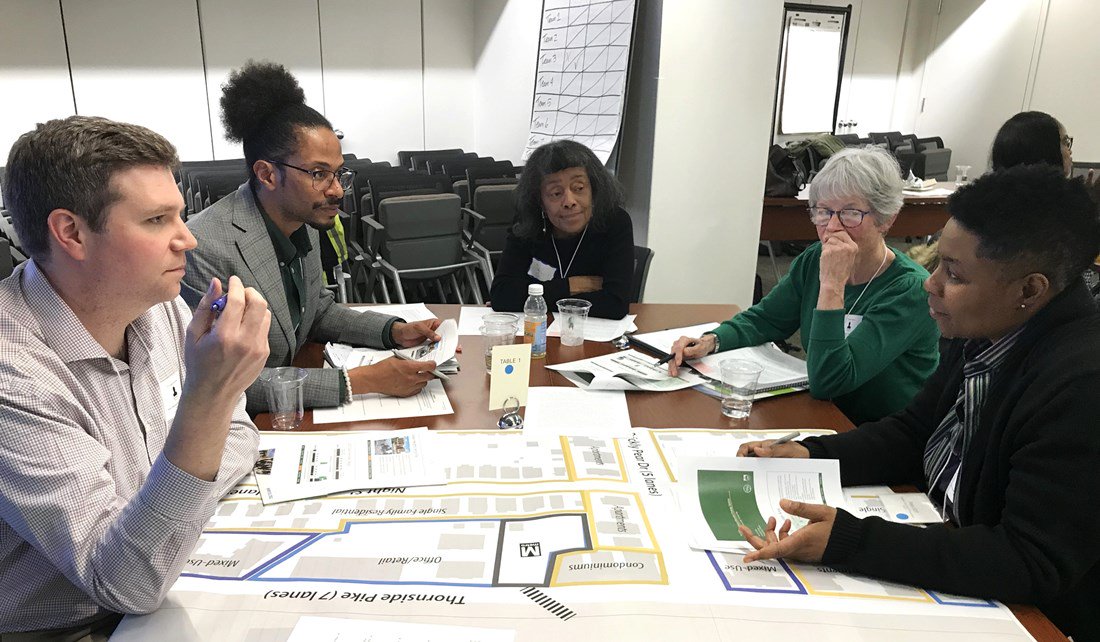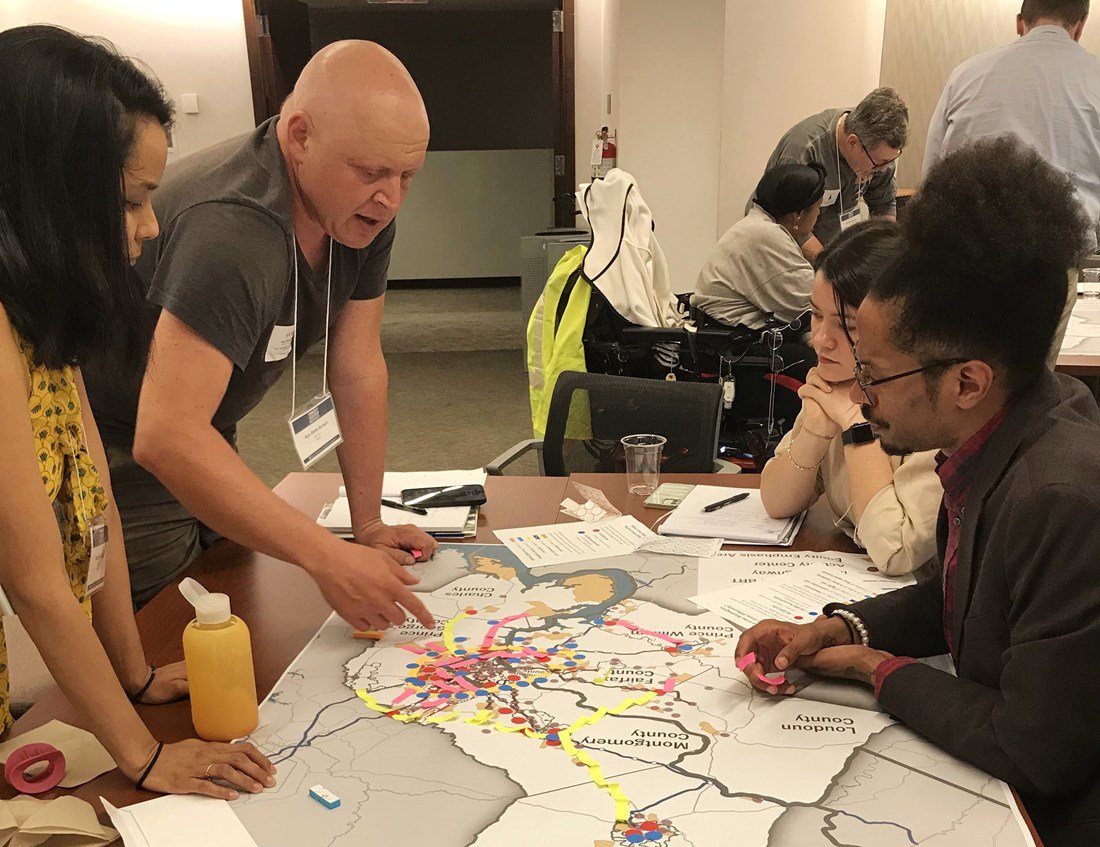On April 25, 30, and May 2, the National Capital Region Transportation Planning Board (TPB) held its first Community Leadership Institute (CLI) in five years. After a hiatus due to the coronavirus pandemic, the in-person, three-evening workshop welcomed twenty participants from the District, Maryland, and Virginia. Community leaders from Charles County to Frederick, to Manassas and jurisdictions in between met at the COG training center to learn about transportation decision-making for roadway, transit, and personal mobility projects and services. CLI emphasizes how a decision made in one city or county ultimately affects the region as a whole.
This year’s CLI was co-facilitated by Kathy Porter, former mayor of Takoma Park and WMATA board member, and Jay Fisette, past chair of the Arlington County Board. TPB Director Kanti Srikanth held an open Q&A with participants during the last session.
The diversity of the 2024 cohort meant that discussions were lively during group exercises. Some CLI participants were new to transportation and arrived ready to learn how their backgrounds in healthcare, housing, land use, and the environment intersect with the transportation network. Others were familiar with transportation needs and issues from involvement in their home communities or by being members of the TPB Community Advisory Committee (CAC). Several 2024 CLI participants work for transportation organizations yet came ready to share with their peers and learn from the TPB presentations and group activities.
"As a regionalist, I think CLI is a great program. Community advocates and activists learn about the DMV’s transportation planning process, engage with peers across the region, and talk with key professional staff. Hands on exercises illustrate the costs, benefits, challenges. and opportunities for the DMV, and give community leaders more tools to be effective,” said CLI co-facilitator Jay Fisette.
Day 1 of CLI featured an overview of the TPB’s role as a regional coordinating body and metropolitan planning organization followed by a scenario planning and public meeting exercise. Participants were assigned roles that might differ from their day-to-day perspectives—ranging from a state DOT representative to a small business owner to a real estate developer—and were asked to develop transportation recommendations for an office relocation project that would affect all modes of transportation.

(COG/TPB)
The second and third days of CLI focused on considerations of how the region is growing and changing in terms of economy, population, and land use. Session 3 included discussions about climate factors, greenhouse gas emissions, and transportation infrastructure resilience. Members of the cohort were asked to consider the implications of growth, transportation and land use connections, and the costs associated with building out their network of choice. Using maps, each table designed an aspirational transportation network then explored what the costs would be—literal financial costs but also potential societal and climate tradeoffs.

(COG/TPB)
Members of the CAC who participated in this year’s CLI provided feedback on their experience.
CAC member Gail Sullivan commented, "One of the challenges is that people come from their own little boxes. So it can be hard to think beyond your own experience. It helps to have the vision of a long-range plan to help everyone think outside their box.”
“(The course) helped me understand how challenging it is to reconcile different concerns and how assigning costs makes it (regional transportation planning) real,” said CAC member Bernie LoCascio.
The TPB Community Leadership Institute emphasizes thinking regionally and acting locally and provides an opportunity for understanding all the steps involved in transportation decision-making. On a personal level, the experience is a great way to hear viewpoints from across the jurisdictions and consider how all forms of transportation impact the region’s growth and people’s movement. Finally, CLI offers an opportunity to expand the knowledge and network of all community members interested in understanding how the National Capital Region’s transportation system developed over time as well as their individual roles in continuing the regional transportation conversation into the future.